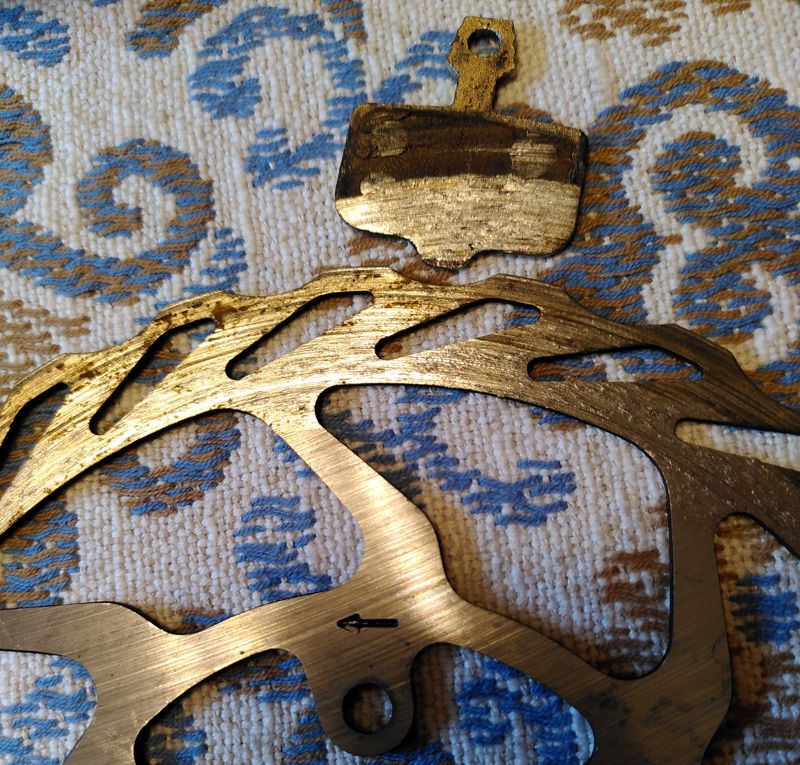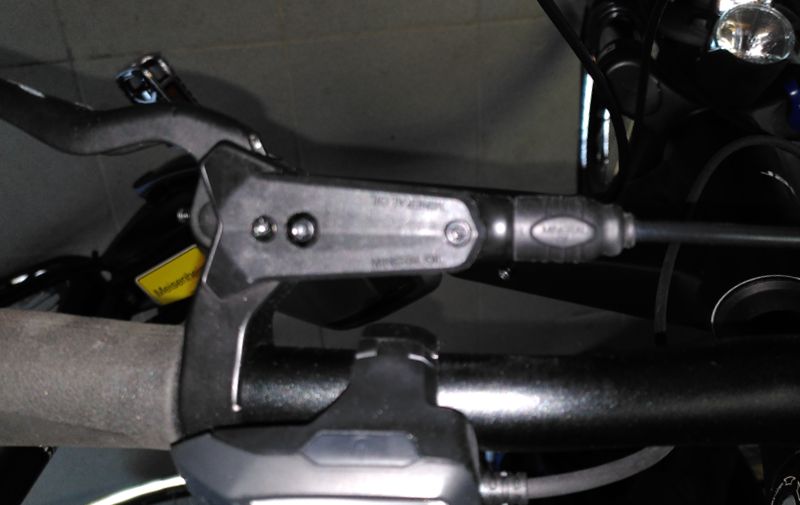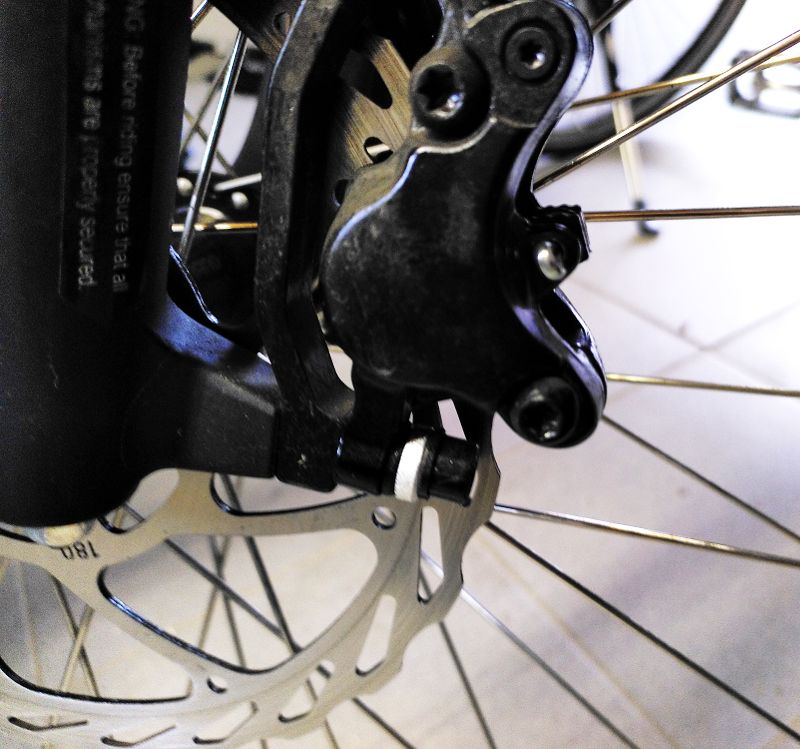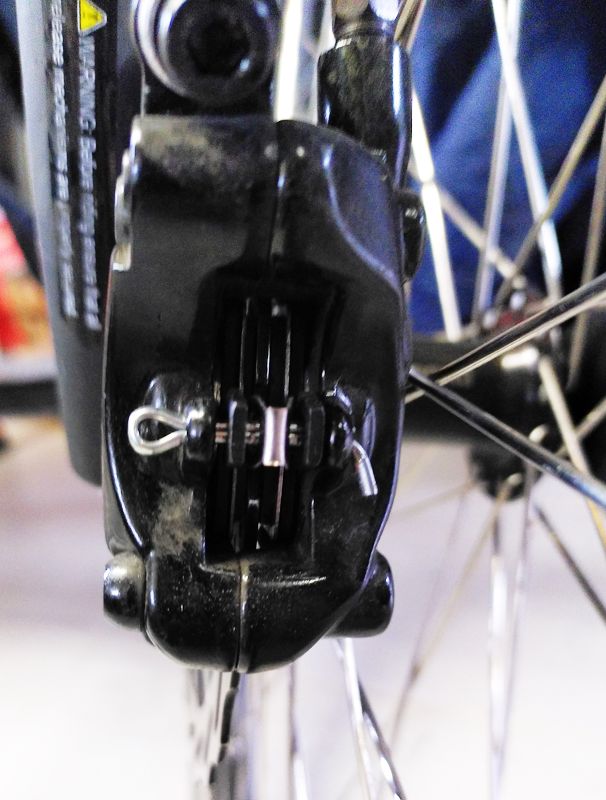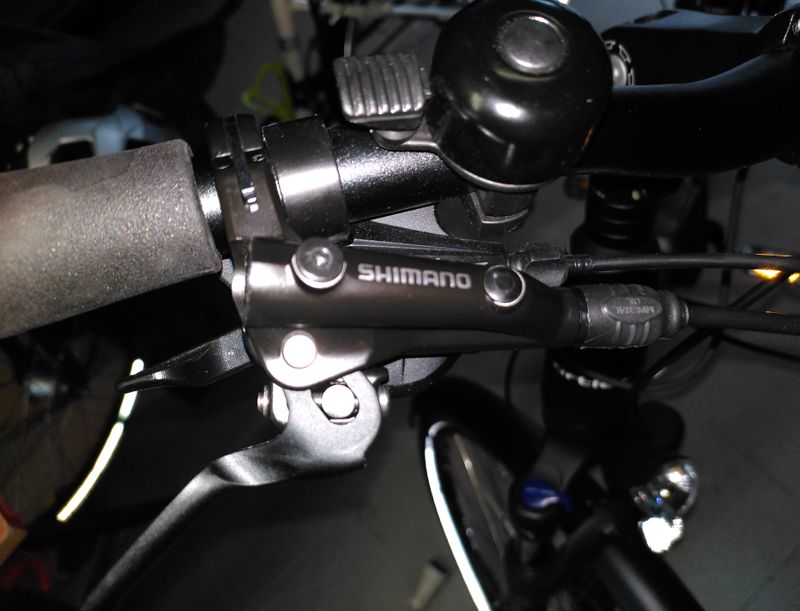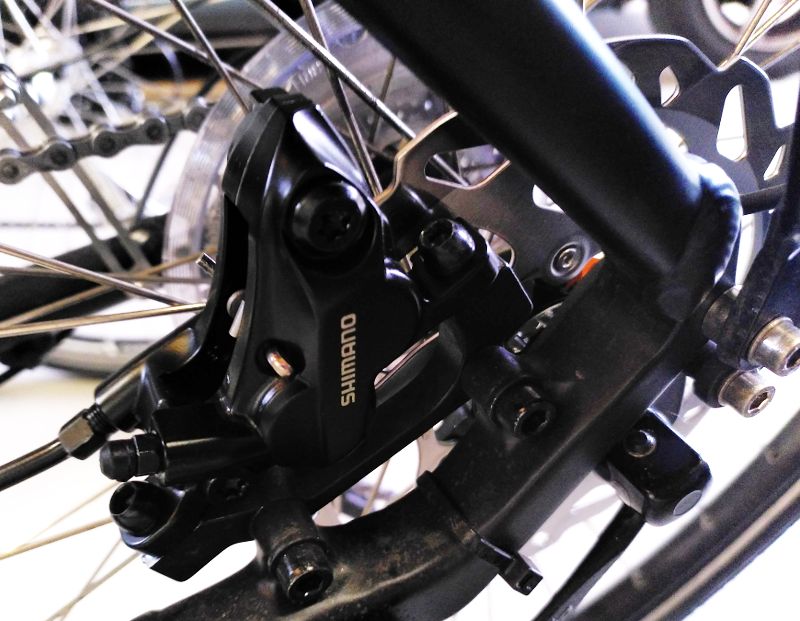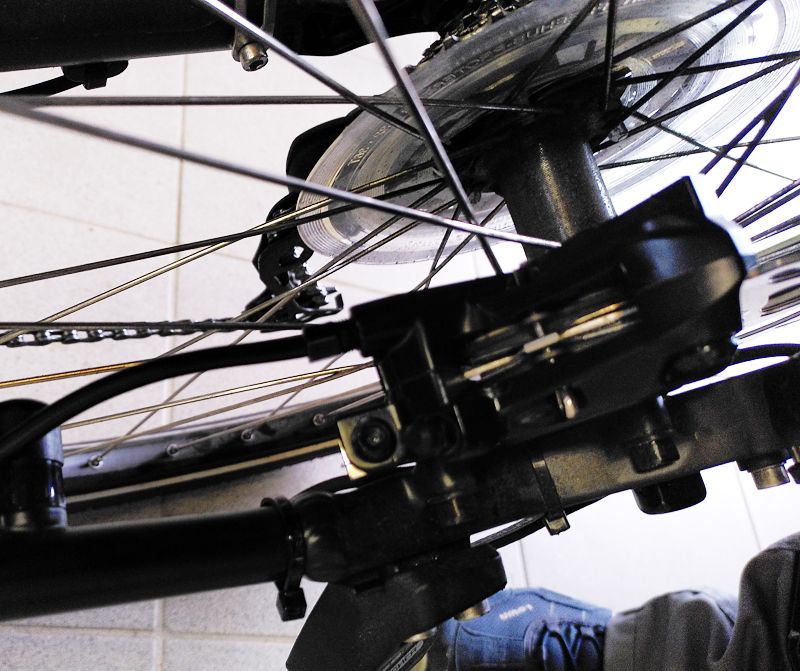I bought a new Ortler electric bicycle a couple of months ago. My wife used it for a couple of weeks to ride to work each day.
The brakes squealed from almost the first day.
After a couple of weeks, the rear brake started getting weak and then pretty much quit braking at all. It acted much like car brakes when there's air in the brake lines - if you pumped the lever a few times the rear brake would "grab" but it also squealed horribly.
The bike has a speedometer and odometer on it. It shows that we've ridden the bike all of 176 kilometers (about 110 miles.)
Since the bike was new, I contacted the company I bought it from (large, well known internet company here in Germany) for a repair under warranty. They referred me to a (somewhat) local repair shop that has a contract to do warranty repairs. They also sent me a complete brake set for the rear brake (lever, brake line, caliper, pads, disc) for the repair shop to use.
So far, OK. Something is wrong, it'll be fixed at the seller's cost.
I picked the bike up from the repair shop this afternoon, and the guy at the shop told me I might end up having to pay for the repair after all - simple wear and tear isn't covered by the warranty.
It turns out the the rear brake pads were worn completely down to bare metal. He assumed we had simply ridden it a lot and worn the brakes out. I showed him the odometer and he was very surprised - he couldn't see how the brakes could wear that much over that short distance.
He also mentioned that the front brakes are also close to being gone - the disc had deep scratches and the pads are close to worn out. He sanded the scratches out of the disc so they don't make as much noise, but I don't expect them to last long.
Worn brake disc and pad:
Original front brakes:
Replacement rear brakes:
The original front brakes are just like the original back brakes. The new back brakes appear to be from a different manufacturer. I've heard of Shimano, but I don't know if the company itself is good or if the brakes are a good model. The original brakes don't seem to have a manufacturer's name on them.
The route my wife has to ride to work has a long, very steep hill that she has to go up and down. That's why she rides an electric bike.
The route is entirely on city streets - no off-road or dirt or gravel paths.
The old electric bike couldn't quite make it up the hill - she had to push it part of the way. She never had trouble with the brakes on the old bike. It had plain old brakes with a center pull cable and the rubber brake blocks that squeeze the wheel rim.
The new bike goes up the hill with ease, but it seems the hill is too much for the brakes.
- Do disc brakes normally wear out fast on long hills?
- Are you supposed to use disc brakes differently from the rim brakes?
- Do we need special pads or discs to handle the hill?
- Should I request that the front brakes be replaced as well?
- Will the new Shimano brakes do better than the original brakes?
Update 2023-10-06:
The bike shop installed the new brakes on the back. They work fine, and have not squealed at all.
The front brakes are worn down. The company I bought the bike from sent another set of brakes (for free) for the front. They declined to pay for the installation since the front brakes are still working. I'll take the bike to the shop next week to have the new front brakes installed.

